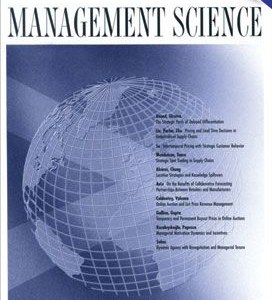
Gryglewicz, S., Hartman-Glaser, B. and Zheng, G. (2020). Growth Options, Incentives, and Pay-for-Performance: Theory and Evidence Management Science, 66(3):1248--1277.
-
Affiliated author
-
Publication year2020
-
JournalManagement Science
Pay–performance sensitivity is a common proxy for the strength of incentives. We show that growth options create a wedge between expected-pay–effort sensitivity, which determines actual incentives, and pay–performance sensitivity, which is the ratio of expected-pay–effort to performance–effort sensitivity. An increase in growth option intensity can increase performance–effort sensitivity more than expected-pay–effort sensitivity so that, as incentives increase, pay–performance sensitivity decreases. We document empirical evidence consistent with this finding. Pay–performance sensitivity, measured by dollar changes in manager wealth over dollar changes in firm value, decreases with proxies for growth option intensity and increases with proxies for growth option exercise.